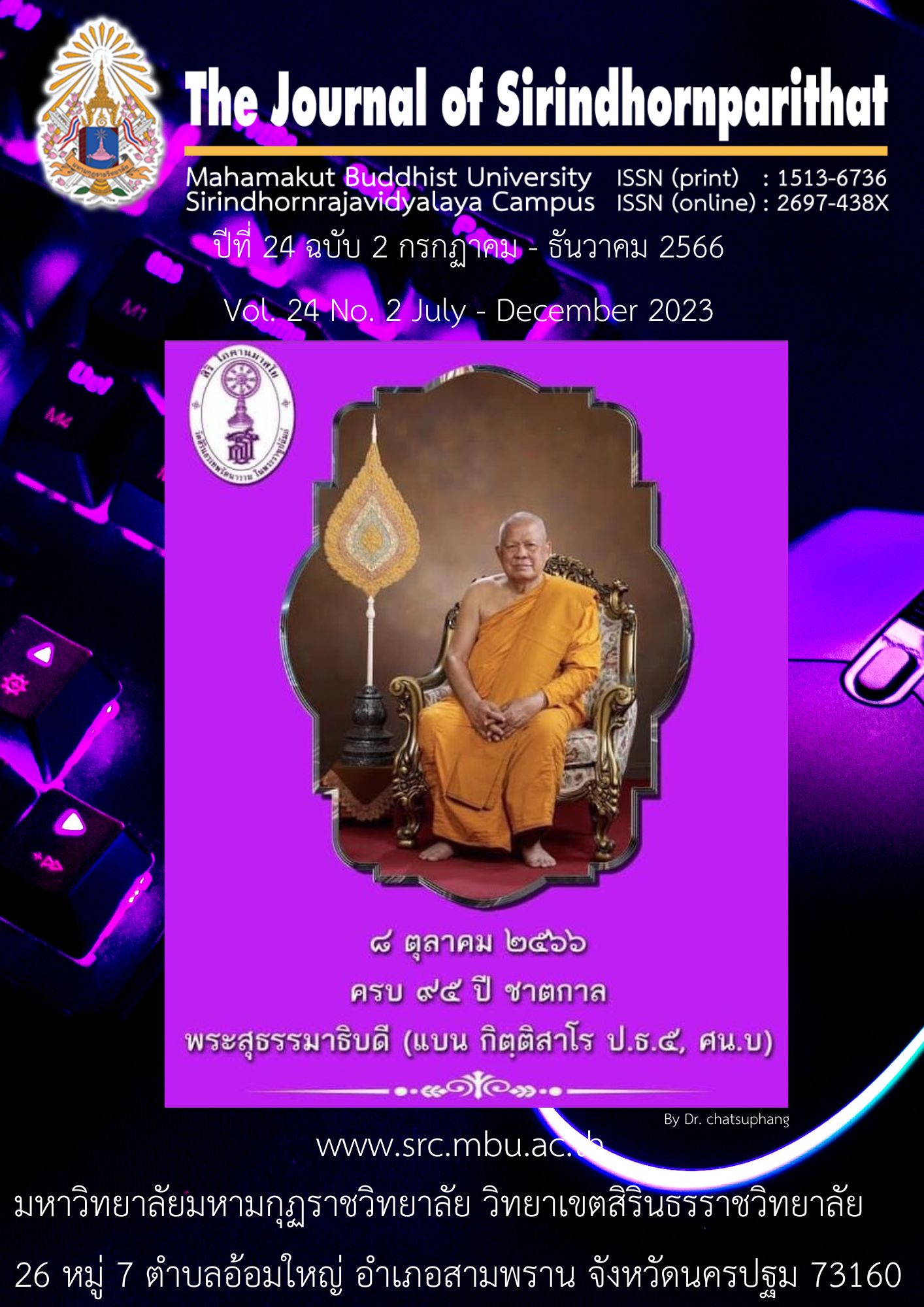Factor Analysis of School Administrators’ Leadership in the Digital Age under Suphanburi Primary Educational Service Area
Keywords:
Leadership, School Administrator, Digital AgeAbstract
The purpose of this research was to study the factor analysis of school administrators’ leadership in the digital age. This mixed research was comprised the qualitative and quantitative method. The qualitative research consisted of in-depth interview and assessment of appropriate, accurate, feasible and useful. The key informants were school administrators, teachers, and academic specialists/supervisors totaling 6 informants, derived by purposive sampling. The research instrument were in-depth interviews form and checklist form. The data was analyzed by frequency, percentage and content analysis. The quantitative research were 196 schools under Suphanburi Primary Educational Service Area. The informants were 784 school administrators and teachers derived by proportional stratified random sampling as distributed by district. The instrument was a questionnaire constructed by the researcher. Data was analyzed by exploratory factor analysis with using principal components analysis and orthogonal rotation by varimax.
The research results indicated that there were 4 the factor analysis of school administrators’ leadership in the digital age consisted of 1) innovative leadership, 2) creative leadership, 3) media literacy leadership, and 4) smart leadership. Standardize factor loading between 0.329-0.725. All elements are statistically significant at .01 level. This proves that the models of humility can explain the factor analysis of school administrators’ leadership in the digital age of 65.666 which was appropriate, accurate, feasible and useful the factor analysis of school administrators’ leadership in the digital age.
References
จิตติรัตน์ แสงเลิศอุทัย. (2559). การวิจัยทางการศึกษา. นครปฐม: มหาวิทยาลัยราชภัฏนครปฐม.
ชีวิน อ่อนละออ, สุชาติ บางวิเศษ, กานนท์ แสนเภา, และสวิตา อ่อนละออ. (2563). ภาวะผู้นำยุคดิจิทัลสำหรับนักบริหารการศึกษา. วารสารวิทยาลัยบัณฑิตเอเชีย, 10(1): 108-119.
ทินกร บัวชู และทิพภาพร บัวชู. (2562). ภาวะผู้นำดิจิทัลของผู้บริหาร. วารสารครุศาสตร์สารมหาวิทยาลัยราชภัฏเพชรบุรี, 13(2): 290-293.
ยุทธ ไกยวรรณ์. (2556). การวิเคราะห์สถิติหลายตัวแปรสำหรับงานวิจัย. กรุงเทพมหานคร: สำนักพิมพ์แห่งจุฬาลงกรณ์มหาวิทยาลัย.
สำนักนโยบายและยุทธศาสตร์. (2563). แผนยุทธศาสตร์กระทรวงศึกษาธิการ. กรุงเทพมหานคร: กระทรวงศึกษาธิการ.
สุชญา โกมลวานิช, สิทธิชัย สอนสุภี, บุญฤทธิ์ เพ็ชรวิศิษฐ์, และเกื้อจิตต์ ฉิมทิม. (2563). องค์ประกอบของภาวะผู้นำดิจิทัลของผู้บริหารสถานศึกษา สังกัด
สำนักงานเขตพื้นที่การศึกษา มัธยมศึกษาเขต 23. การประชุมวิชาการเสนอผลงานวิจัยระดับบัณฑิตศึกษาแห่งชาติ ครั้งที่ 21. มหาวิทยาลัยขอนแก่น.
สุภมาส อังศุโชติ, สมถวิล วิจิตรวรรณา, และรัชนีกูล ภิญโญภานุวัฒน์. (2557). สถิติวิเคราะห์สำหรับการวิจัยทางสังคมศาสตร์และพฤติกรรมศาสตร์. (พิมพ์ครั้งที่ 4). กรุงเทพมหานคร: เจริญดีมั่นคงการพิมพ์.
อินทิรา ชูศรีทอง, ไชยา ภาวะบุตร, และวัฒนา สุวรรณไตรย์. (2563). รูปแบบการพัฒนาครูในการใช้เทคโนโลยีสารสนเทศและการสื่อสารเพื่อการจัดการเรียนรู้ในโรงเรียนประถมศึกษา สังกัดสำนักงานศึกษาธิการภาค 11. วารสารวิชาการและวิจัย มหาวิทยาลัยภาคตะวันออกเฉียงเหนือ, 10(2): 98-112.

Downloads
Published
Issue
Section
License
Copyright (c) 2023 Mahamakut Buddhist University

This work is licensed under a Creative Commons Attribution-NonCommercial-NoDerivatives 4.0 International License.
บทความที่ได้รับการตีพิมพ์เป็นลิขสิทธิ์ของ มหาวิทยาลัยมหามกุฏราชวิทยาลัย วิทยาเขตสิรินธรราชวิทยาลัย
ข้อความที่ปรากฏในบทความแต่ละเรื่องในวารสารวิชาการเล่มนี้เป็นความคิดเห็นส่วนตัวของผู้เขียนแต่ละท่านไม่เกี่ยวข้องกับหาวิทยาลัยมหามกุฏราชวิทยาลัย วิทยาเขตสิรินธรราชวิทยาลัย และคณาจารย์ท่านอื่นๆในมหาวิทยาลัยฯ แต่อย่างใด ความรับผิดชอบองค์ประกอบทั้งหมดของบทความแต่ละเรื่องเป็นของผู้เขียนแต่ละท่าน หากมีความผิดพลาดใดๆ ผู้เขียนแต่ละท่านจะรับผิดชอบบทความของตนเองแต่ผู้เดียว



